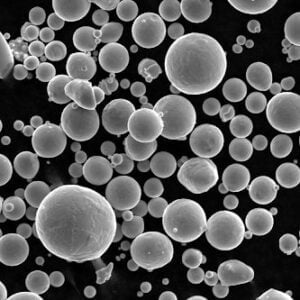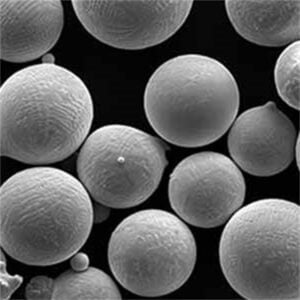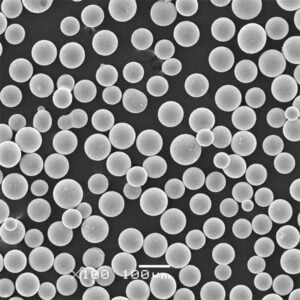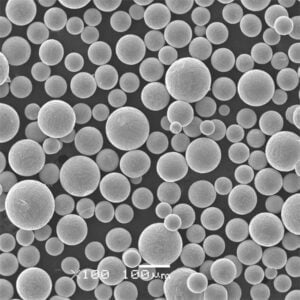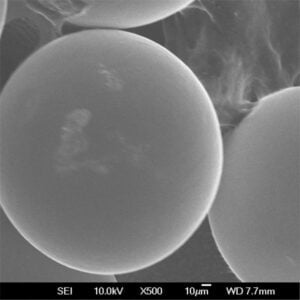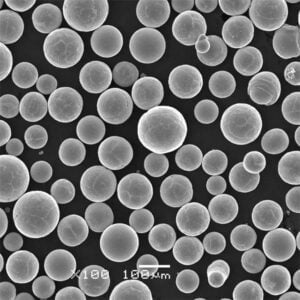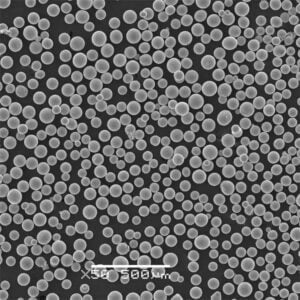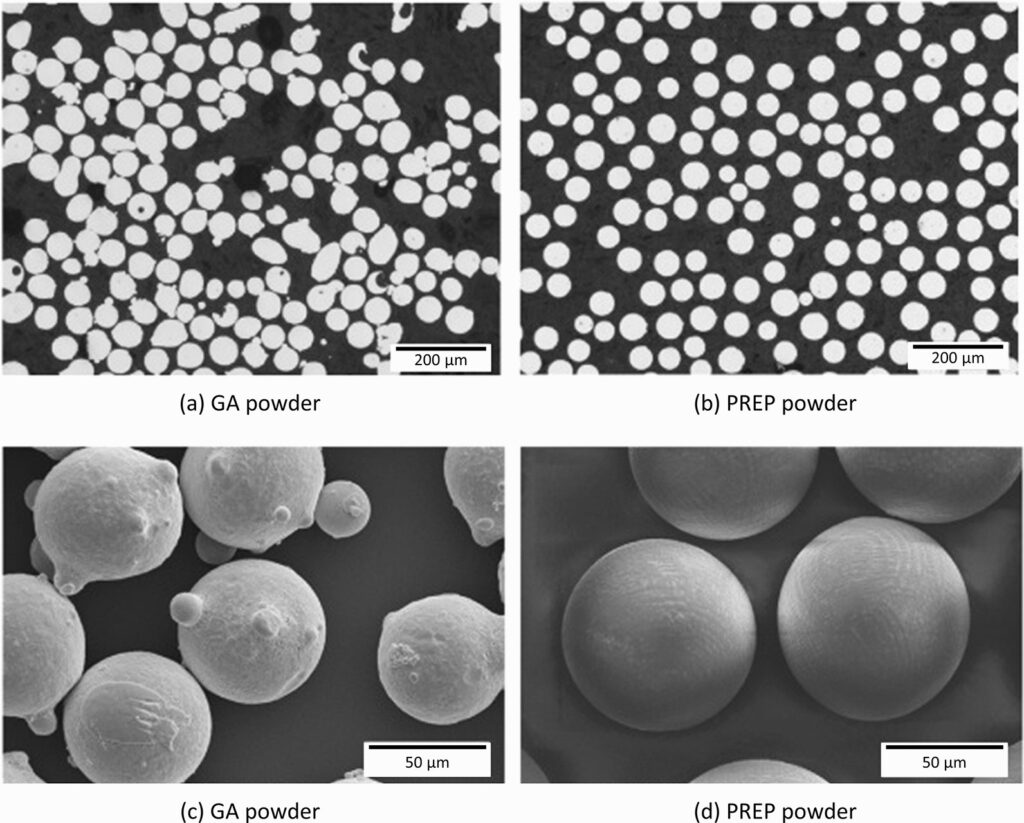
Unlock the Full Potential of 17-4PH Powder for High-Stress Applications
Low MOQ
Provide low minimum order quantity to meet different needs.
OEM & ODM
Provide customized products and design services to meet unique customer needs.
Adequate Stock
Ensure fast order processing and provide reliable and efficient service.
Customer Satisfaction
Provide high quality products with customer satisfaction at the core.
share this article
Table of Contents
In the fast-evolving world of engineering and materials, 17-4PH Powder stands out as an indispensable material for industries requiring both high strength and corrosion resistance. If you’re involved in aerospace, medical devices, or oil and gas, you’ve probably come across this versatile material. But what makes 17-4PH Powder so unique, and why is it such a popular choice across so many sectors?
This article is your ultimate guide to 17-4PH Powder. We’ll break down its composition, properties, and applications while addressing important considerations like pricing, suppliers, and comparisons to other materials. Whether you’re an engineer, manufacturer, or researcher, this in-depth article will help you understand why 17-4PH Powder might be the solution you’ve been searching for.
Overview of 17-4PH Powder
17-4PH Powder is a precipitation hardening stainless steel known for its superior combination of mechanical strength, corrosion resistance, and good temperature stability. It’s particularly valuable in applications where materials are subjected to high stress, variable loads, and corrosive environments. This powder is widely used in additive manufacturing (3D printing), metal injection molding, and other powder metallurgy processes.
The “PH” in 17-4PH stands for precipitation hardening, a process that enhances the material’s strength through heat treatment. The number “17” refers to the chromium content, and the “4” refers to the nickel content.
Why Choose 17-4PH Powder?
Imagine you’re building a component for an aircraft that will be exposed to high temperatures, stress, and corrosive environments. You need a material that doesn’t just survive but thrives in these conditions. That’s where 17-4PH Powder comes in. Its unique properties make it a top choice for industries where failure is simply not an option.
Composition and Properties of 17-4PH Powder
The composition of 17-4PH Powder is what makes it such a high-performance material. It’s carefully balanced with chromium, nickel, copper, and niobium to provide a combination of strength, hardness, and corrosion resistance.
Composition
| Element | Percentage (%) |
|---|---|
| Iron (Fe) | Balance |
| Chromium (Cr) | 15.0 – 17.5 |
| Nickel (Ni) | 3.0 – 5.0 |
| Copper (Cu) | 3.0 – 5.0 |
| Manganese (Mn) | 1.00 max |
| Silicon (Si) | 1.00 max |
| Columbium (Nb) | 0.15 – 0.45 |
| Carbon (C) | 0.07 max |
| Phosphorus (P) | 0.04 max |
| Sulfur (S) | 0.03 max |
This specific balance of elements gives 17-4PH its precipitation hardening capability, which significantly increases its mechanical durability after heat treatment.
Mechanical and Physical Properties
| Property | Value |
|---|---|
| Tensile Strength | 1000 – 1400 MPa |
| Yield Strength | 960 – 1100 MPa |
| Hardness (Rockwell C) | 35 – 44 HRC (after heat treatment) |
| Elongation (in 50mm) | 12 – 15% |
| Modulus of Elasticity | 200 GPa |
| Density | 7.75 g/cm³ |
| Thermal Conductivity | 18 W/mK |
| Coefficient of Expansion | 10.8 x 10⁻⁶ /°C (20-100°C) |
Key Takeaways:
- Strength: One of the highest strengths you’ll find in stainless steel powders, especially after heat treatment.
- Corrosion Resistance: While not as corrosion-resistant as some austenitic stainless steels (like 316L), 17-4PH provides excellent resistance to environmental and chemical corrosion.
- Heat Treatability: This material can be precipitation hardened, significantly increasing its strength and hardness through heat treatment processes.
Applications of 17-4PH Powder
With its exceptional combination of strength and corrosion resistance, 17-4PH Powder is used in some of the most demanding industrial applications. From aerospace components to surgical instruments, this versatile material can be found in sectors that require high performance and durability.
Common Applications
| Industry | Application |
|---|---|
| Aerospace | Turbine blades, landing gear components |
| Automotive | High-performance engine parts |
| Medical Devices | Surgical instruments, orthopedic implants |
| Oil & Gas | Pumps, valves, and drilling components |
| Defense | Weapon systems, armor plating |
| Marine | Propeller shafts, marine fasteners |
| Additive Manufacturing | 3D printed parts for high-stress applications |
Why 17-4PH Powder Excels in These Applications
Consider a turbine blade used in a jet engine. The blade needs to withstand high temperatures, endure mechanical stress, and resist corrosion from the harsh operating environment. 17-4PH Powder, with its excellent high-temperature performance and corrosion resistance, is the ideal material for such an application.
Specifications, Sizes, and Standards for 17-4PH Powder
For any material to be used in critical applications, it must adhere to stringent specifications and standards. 17-4PH Powder is no exception. It’s available in various particle sizes and meets several international standards to ensure consistency, performance, and reliability.
Specifications and Sizes
| Specification | Details |
|---|---|
| Particle Size | 15 to 45 μm (microns) |
| Powder Flowability | 20 – 30 sec/50g (ASTM B213) |
| Apparent Density | 4.5 g/cm³ |
| Tap Density | 5.0 g/cm³ |
| Standards | ASTM A564, AMS 5643, ASTM F899 |
| Packaging Sizes | 1 kg, 5 kg, 25 kg |
| Form | Spherical powder |
Grades
| Grade | Characteristics |
|---|---|
| 17-4PH H900 | Higher hardness but lower elongation, used for high-stress components |
| 17-4PH H1025 | Balanced between strength and toughness, used in aerospace applications |
| 17-4PH H1150 | Lower hardness but better toughness, used in marine and oil & gas applications |
| 17-4PH Condition A | Annealed condition, easier to machine before heat treatment |
Key Considerations for Selecting 17-4PH Powder
- Particle Size: Particle size distribution is crucial for powder metallurgy and additive manufacturing applications. Smaller particles offer better surface finish but can be more challenging to handle.
- Heat Treatment: Choosing the right heat treatment grade (H900, H1025, H1150) depends on the balance between hardness and toughness required for your application.
Suppliers and Pricing of 17-4PH Powder
The price of 17-4PH Powder can vary based on several factors, including supplier, quantity, and particle size distribution. Like most specialized materials, the cost is driven by the complexity of production and market demand.
Suppliers and Pricing Details
| Supplier | Location | Price Range (per kg) | Delivery Time |
|---|---|---|---|
| PowderTech Solutions | USA | $50 – $70 | 1-2 weeks |
| Metal Additive Co. | Germany | $60 – $85 | 2-3 weeks |
| Global Metals Ltd. | China | $45 – $65 | 3-4 weeks |
| Precision Powders | UK | $55 – $75 | 2 weeks |
Factors Affecting Pricing
- Quantity: Larger orders typically come with lower per-kilogram prices.
- Customization: Specific particle size distributions or enhanced flowability may increase the price.
- Location: Domestic suppliers tend to offer faster shipping but may be more expensive compared to international options.
Pros and Cons of 17-4PH Powder
As with any material, 17-4PH Powder has its strengths and weaknesses. Understanding both the advantages and limitations can help you make the right decision for your project.
Advantages and Limitations
| Advantages | Limitations |
|---|---|
| High strength and hardness after heat treatment | Can be more expensive than other stainless steels |
| Excellent corrosion resistance in moderate environments | Not as corrosion-resistant as austenitic steels like 316L |
| Good temperature stability | Requires heat treatment to reach full strength |
| Versatile for a wide range of applications | Limited resistance in highly acidic environments |
| Available in powder form for additive manufacturing | Harder to machine after heat treatment |
Key Takeaway
If your project demands high strength, good corrosion resistance, and temperature stability, 17-4PH Powder is an excellent choice. However, for projects where corrosion resistance is the highest priority (for example, in marine environments), you might consider more specialized austenitic stainless steels like 316L.
FAQs
Let’s address some of the most common questions people have about 17-4PH Powder.
What is 17-4PH Powder used for?
17-4PH Powder is used in high-stress applications such as turbine blades, gears, valves, and surgical instruments. It is valued for its combination of strength, corrosion resistance, and temperature stability.
How does 17-4PH Powder compare to 316L stainless steel?
While 316L offers better corrosion resistance, especially in marine environments, 17-4PH is far stronger and more wear-resistant, especially after heat treatment. 316L is often chosen for applications where corrosion resistance is the primary concern, while 17-4PH is used when strength and hardness are more critical.
Can 17-4PH Powder be used in additive manufacturing?
Yes! 17-4PH Powder is frequently used in additive manufacturing (3D printing), particularly for parts that require high strength and corrosion resistance. Its ability to be heat treated to increase hardness makes it ideal for functional and structural parts.
How much does 17-4PH Powder cost?
On average, 17-4PH Powder costs between $45 to $85 per kilogram, depending on the supplier, quantity, and any custom specifications required.
Is 17-4PH Powder easy to machine?
17-4PH can be machined relatively easily in its annealed condition (Condition A). However, after heat treatment, it becomes much harder and more challenging to machine without specialized cutting tools.
Conclusion
In industries that require high strength, good corrosion resistance, and temperature stability, 17-4PH Powder offers a versatile and reliable solution. Whether you’re working on aerospace components, medical devices, or oil and gas equipment, this material can withstand the rigors of demanding environments.
By understanding the composition, properties, and applications of 17-4PH Powder, you can make more informed decisions for your next project. Whether you’re focused on additive manufacturing, powder metallurgy, or simply need a material that can handle high stress, 17-4PH Powder is a strong contender.
So, is 17-4PH Powder the right choice for your project? If you need a material that offers strength, corrosion resistance, and versatility, it just might be.
Get Latest Price
About Met3DP
Product Category
HOT SALE
CONTACT US
Any questions? Send us message now! We’ll serve your request with a whole team after receiving your message.

Metal Powders for 3D Printing and Additive Manufacturing
COMPANY
PRODUCT
cONTACT INFO
- Qingdao City, Shandong, China
- [email protected]
- [email protected]
- +86 19116340731






